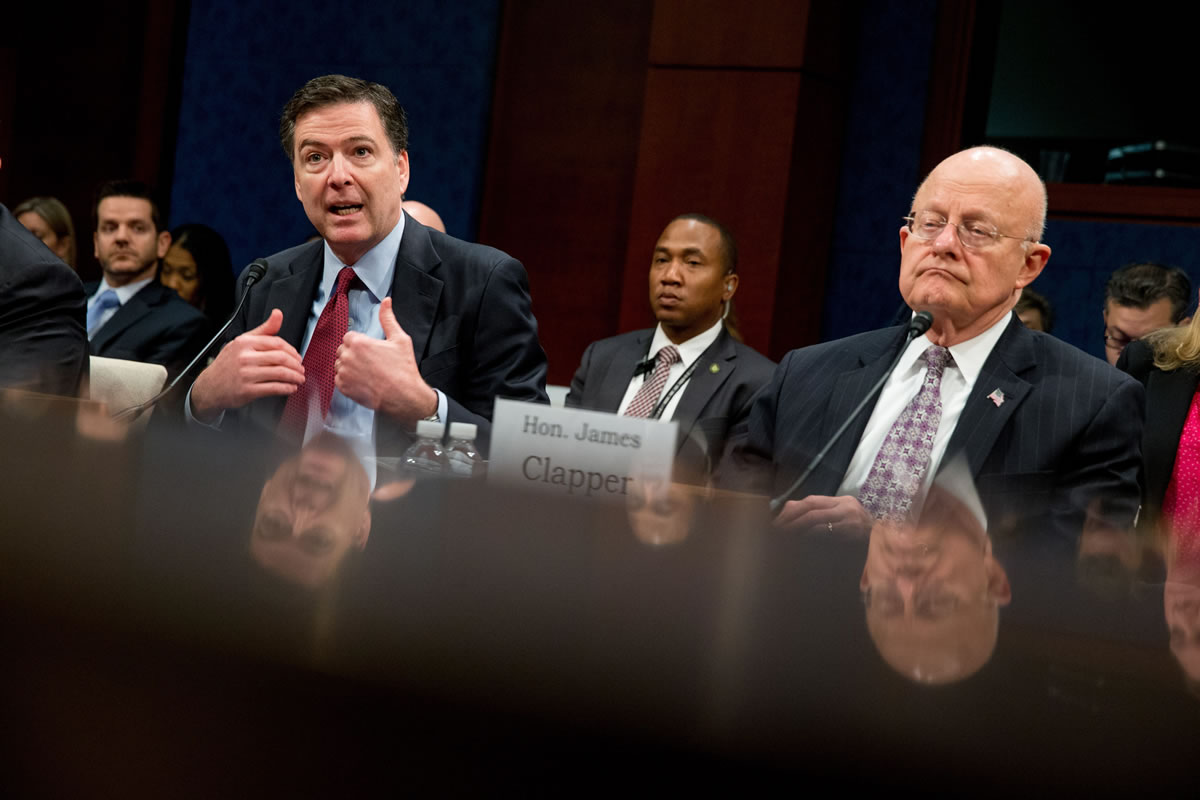WASHINGTON — Apple Inc. on Thursday asked a federal magistrate to reverse her order that the company help the FBI hack into a locked iPhone, accusing the federal government of seeking “dangerous power” through the courts and of trampling on its constitutional rights.
The filing represents Apple’s first official response since the judge’s order last week and builds upon arguments voiced by the company’s chief executive and supporters. It marks the latest salvo in a court fight that could create meaningful precedent and establish new legal boundaries in the policy battle between national security and digital privacy — a clash FBI Director James Comey says is the “hardest question I’ve seen in government.”
“No court has ever authorized what the government now seeks, no law supports such unlimited and sweeping use of the judicial process, and the Constitution forbids it,” Apple said.
The Justice Department is proposing a “boundless interpretation” of the law that, if left unchecked, could bring disastrous repercussions, the company warned in a memo submitted to Magistrate Sheri Pym that aggressively challenges policy justifications put forward by the Obama administration in the last several days.
“The government says: ‘Just this once’ and ‘Just this phone.’ But the government knows those statements are not true,” lawyers for Apple wrote.
If Apple were required to build the software the FBI wants, the lawyers argued, “criminals, terrorists and hackers will no doubt view the code as a major prize and can be expected to go to considerable lengths to steal it.”
Justice Department lawyers were reviewing Apple’s brief and will respond, said spokeswoman Melanie Newman. She said Apple had reversed “its long-standing” cooperation with government requests, and that when Justice Department officials want to search a phone or another electronic device, “we narrowly target our request to apply to the individual device” and get a judge’s approval.
A hearing is scheduled for next month. A judge in Brooklyn has yet to rule in a similar but separate case.
Apple had until today to file its formal objection, but in submitting its brief on Thursday, the company got ahead of a scheduled shareholders meeting and took attention away from Comey, who defended the Justice Department’s stance in two appearances before Congress.
The dispute broke into public view last week when Pym directed Apple to help the FBI gain access to a phone used by one of the assailants in the San Bernardino, Calif., attacks.
Federal agents haven’t been able to open the phone of Syed Farook because they don’t know the passcode. The Justice Department wants Apple to create specialized software for the iPhone that would bypass some security features so that the FBI can try as many passcodes as possible without the data being erased.
The Justice Department has repeatedly maintained that it’s seeking specialized software for just one phone as part of an investigation into an act of terrorism that left 14 people dead, and that Apple could retain and destroy the software once the process ends. On Thursday, Comey said the idea that the software could get “out in the wild” was not a legitimate concern.
But Apple said the specialized software the government wants it to build does not currently exist and “would require significant resources and effort to develop,” including the work of six to 10 engineers working two to four weeks. The magistrate judge suggested in her ruling that the government would be required to pay Apple’s costs.
Apple compared forcing it to create software that doesn’t exist to weaken the iPhone’s locks to forcing a journalist to publish false information to arrest a fugitive or forcing another software company to implant a virus in a customer’s computer so the government could eavesdrop.
And it accused the government of working under a closed courtroom process under the auspices of a terrorism probe of trying “to cut off debate and circumvent thoughtful analysis.”



